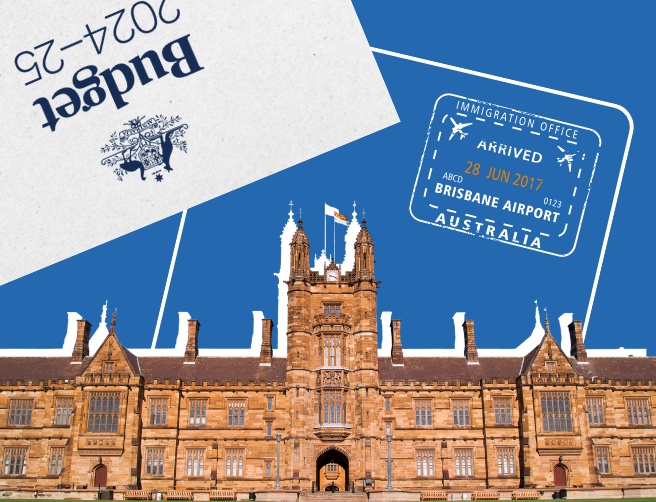With the new financial year upon us, let our expert immigration lawyer Karthiha Kailasanathan walk you through the ten most significant migration changes outlined in this year’s budget.
Australia’s migration system is rapidly changing.
In December of 2023, the Australian Government introduced their new Migration Strategy, which aims to:
– Address skill needs and promote worker mobility from temporary status to permanent residence;
– Streamline visa processing by making systems and technology more accessible and easier to navigate;
– Strengthen the integrity of Australia’s international education sector and its ties to actual labour shortages;
– Improve economic outcomes from migration.
The Federal Budget for Financial Year 2024-25 seeks to achieve these goals by proposing several changes to our country’s migration framework.
Here are the ten most notable changes to migration in Austria outlined in this year’s budget:
1. Permanent Migration
Firstly, the budget makes significant changes to permanent migration in Australia. The budget sets a target for the 2024-25 permanent migration program at 185,000 places, with 70% (132,000 places) allocated to skilled migrants.
There are increased allocations for:
– Employer Nominated Visas (subclass 186)
– State Nominated Visas (subclass 491)
And decreased allocations for:
– Skilled Independent Visas (subclass 189)
– Global Talent Visas (subclass 858)
This shows a drive towards employer-driven and regional migration for the long-term, opening opportunities for business owners to secure a range of talent from a more stable labour force, as well as allowing migrants to benefit from Australia’s growing economy.
2. Temporary Employer-Sponsored Migration
The budget also includes major changes to temporary work visas. From 23 November 2024, the work experience requirement for the Temporary Skill Shortage visa (subclass 482) will decrease from 2 years to 1 year. This will improve access to skilled workers and skilled visas.
In conjunction with the more flexible requirements for transitional permanent residence, this should facilitate more longer-term labour for Australian businesses and more stable lives for migrant workers.
3. Student Visa Limitations
There are significant changes to Australian student visas too. Australia’s student and graduate visa programs will be subject to stricter limits on availability and several other changes.
You can learn more about changes to student and graduate visas here.
4. National Innovation Visa
The budget introduces a new National Innovation Visa, which will in effect replace the Global Talent (subclass 858) and Business Innovation and Investment (subclass 188/888) visas. This change is designed to more specifically target high-level talent in areas where national growth can benefit from improved innovation capabilities.
5. Work and Holiday Visa
Given the growing demand for Australian work and holiday visas from China, Vietnam, and India, the government will introduce a pre-application ballot process which allows for a more equitable random selection of applicants from these countries where numbers are significantly exceeding allocations.
6. Mobility Arrangement for Talented Early-Professionals Scheme (MATES)
There is a new Australian visa for Indian citizens too. From 1 November 2024, this new program will allow 3,000 Indian graduates and early career professionals to live and work in Australia for up to 2 years.
This acknowledges the high demand by Indian nationals for our skilled visas, and recognises their important contributions to the Australian economy.
7. Strengthening Safety and Integrity in the Migrant Economy
The budget not only proposes changes to the visa process, but commits significant funds to improving the experience for migrants in Australia as well.
For example, the government is investing $15 million into improving the treatment of migrant workers by educating migrants on their rights and protections at work. An additional $1.9 million will also fund a data-matching pilot program between the Department of Home Affairs and the Australian Tax Office to improve accountability on pay. And a further $100 million will be allocated to the Department of Home Affairs to improve general organisational function and efficiency.
8. Support Services for Migrants and Refugees
Likewise, the government has allocated $34.5 million toward improved support services for migrants and refugees. This includes a program to help humanitarian visa holders from Afghanistan to be settled in Australia.
9. Immigration Detention Centres
The government will fund improved security measures at the Yongah Hill Immigration Detention Centre. This follows serious concerns over the safety conditions and level of care provided for both detainees and staff.
10. Merits Review Changes
Last but not least, the Administrative Appeals Tribunal will be replaced with the new Administrative Review Tribunal. The government will invest over $1 billion in this 5-year transition with a view toward improving migration and visa backlogs and processes.
It’s important to note that these announcements only outline the government’s goals for the migration system, and will not take effect until regulations are officially in place.
Get in touch:
Embarking on your own migration journey? Worried about how these changes might affect you? One call can make all the difference.
Our expert migration lawyers will provide you with tailored legal advice to help you navigate our constantly changing immigration landscape.
Call us at (02) 4227 6833, or email us at admin@nikolovskilawyers.com.au to arrange a consultation today.

 Call
Call


